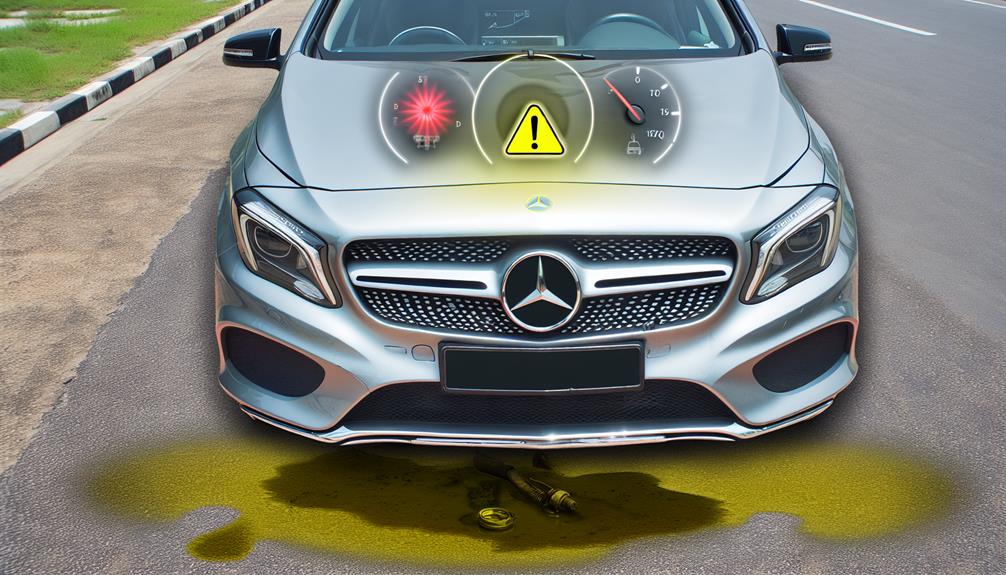When comparing the reliability of Mercedes and BMW, it is important to note that Consumer Reports ranks Mercedes-Benz higher at 24th place compared to BMW's 3rd place ranking. While BMW has made improvements to address past issues with certain engine models, both manufacturers have faced challenges with their transmissions affecting their reliability standings. Mercedes-Benz has had struggles with electrical system problems, rust, air suspension issues, and turbocharged engine issues.
Long-term maintenance costs also show that BMW repair costs over a decade can be notably higher than those of Mercedes-Benz. These insights provide a glimpse into the complexities of luxury vehicle reliability, hinting at more intricate details to explore further.
Key Takeaways
- Consumer Reports ranks Mercedes-Benz 24th and BMW 3rd for reliability.
- BMW repair costs over a decade can be significantly higher than Mercedes-Benz.
- Mercedes-Benz faces challenges with electrical systems, rust, air suspension, and turbocharged engines.
- BMW models are known for sporty performance and driving dynamics.
- Diligent maintenance is crucial for long-term reliability in luxury vehicles.
Reliability Comparison: Mercedes Vs BMW
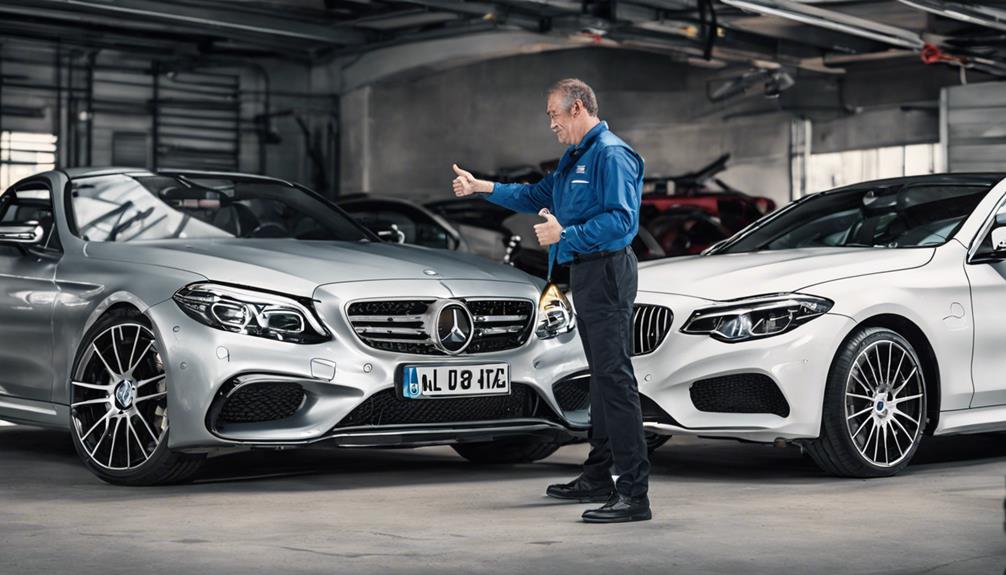
When comparing the reliability of Mercedes-Benz and BMW, Consumer Reports ranks Mercedes-Benz higher at 24th place compared to BMW's 3rd place ranking. This difference in reliability scores can be attributed to several factors. BMW has faced issues with certain engine models, impacting its overall reliability standing when compared to Mercedes-Benz. Additionally, both manufacturers have encountered problems with their transmissions, affecting their reliability ratings. Mercedes-Benz, in particular, has struggled with electrical system issues, rust, air suspension challenges, and problems with turbocharged engines, which have all influenced its reliability scores.
Furthermore, when considering long-term ownership costs, BMW repair costs over a ten-year period can be significantly higher than those of Mercedes-Benz. These higher repair costs for BMW can impact the overall satisfaction and perception of reliability among consumers. Despite both brands being known for their luxury and performance, these reliability and repair cost differences can play a significant role in the decision-making process when choosing between Mercedes-Benz and BMW.
Performance and Reliability Analysis
When analyzing the performance and reliability of Mercedes-Benz and BMW vehicles, it's important to take into account key points such as:
- Engine performance comparison
- Long-term maintenance costs
- User-reported issues
These factors play a significant role in determining the overall reliability of these luxury car brands.
Engine Performance Comparison
In the domain of luxury vehicle performance and reliability, comparing the engine performance of Mercedes-Benz and BMW models reveals distinct characteristics and considerations. When evaluating engine performance, it's important to note the following:
- BMW has addressed past engine model issues, focusing on enhancing newer engines.
- Mercedes-Benz has encountered challenges with various engine components, particularly turbocharged engines.
- BMW models are renowned for their sporty engine performance and driving dynamics.
- Reliability concerns related to engine components can have a major impact on overall ownership satisfaction for both BMW and Mercedes-Benz vehicles.
- Ensuring long-term reliability in luxury vehicles necessitates diligent maintenance and prompt resolution of any engine-related issues.
Long-Term Maintenance Costs
Considering the significant disparity in long-term maintenance costs between BMW and Mercedes-Benz over a decade, it is evident that these expenses play an important role in the overall performance and reliability analysis of both luxury brands. When it comes to German luxury, both BMW and Mercedes-Benz can rack up expensive repair bills. Below is a comparison table illustrating the average repair costs over a 10-year period for each brand:
| BMW | Mercedes-Benz | |
|---|---|---|
| 1 Year | $2,000 | $1,400 |
| 3 Years | $5,000 | $3,200 |
| 5 Years | $9,000 | $5,600 |
| 7 Years | $14,000 | $8,000 |
| 10 Years | $20,000 | $13,000 |
As seen from the table, BMW maintenance costs can be substantially higher than those of Mercedes-Benz, making long-term ownership more expensive for BMW owners.
User-Reported Issues
User-reported issues provide valuable insights into the performance and reliability of BMW and Mercedes-Benz vehicles. When contemplating these reports, it becomes evident that both brands have had their share of concerns. Here are some key points to keep in mind:
- BMW had issues with certain engine models before enhancements with newer engines.
- Mercedes-Benz faced problems with electrical systems, rust, air suspension, 4Matic system, and turbocharged engines.
- Transmission problems have been a concern for both BMW and Mercedes-Benz.
Ensuring proper maintenance and addressing transmission issues promptly is essential for vehicle longevity. Consumer Reports ranks BMW third and Mercedes-Benz 24th for reliability.
Understanding these user-reported issues can help you make well-informed decisions when choosing between BMW and Mercedes-Benz models.
Cost of Ownership Breakdown
When comparing the cost of ownership breakdown between Mercedes and BMW, it's evident that significant disparities exist in long-term maintenance expenses. BMW owners face repair costs that can soar up to $20,000 over a decade, which is approximately $16,000 more than what Mercedes-Benz owners typically spend.
Surprisingly, a nine-year-old BMW demands more significant maintenance expenditures compared to a 12-year-old Mercedes-Benz, showcasing the higher costs associated with BMW ownership. Both BMW and Mercedes-Benz surpass the industry average in repair costs over a ten-year period, indicating that they're more expensive to maintain than many other vehicles.
Despite these high costs, BMW edges out Mercedes-Benz in reliability, as per Consumer Reports. To safeguard the longevity of these luxury vehicles, it's paramount for owners to adhere to proper maintenance practices and promptly address any transmission issues that may arise.
Maintenance Costs and Durability
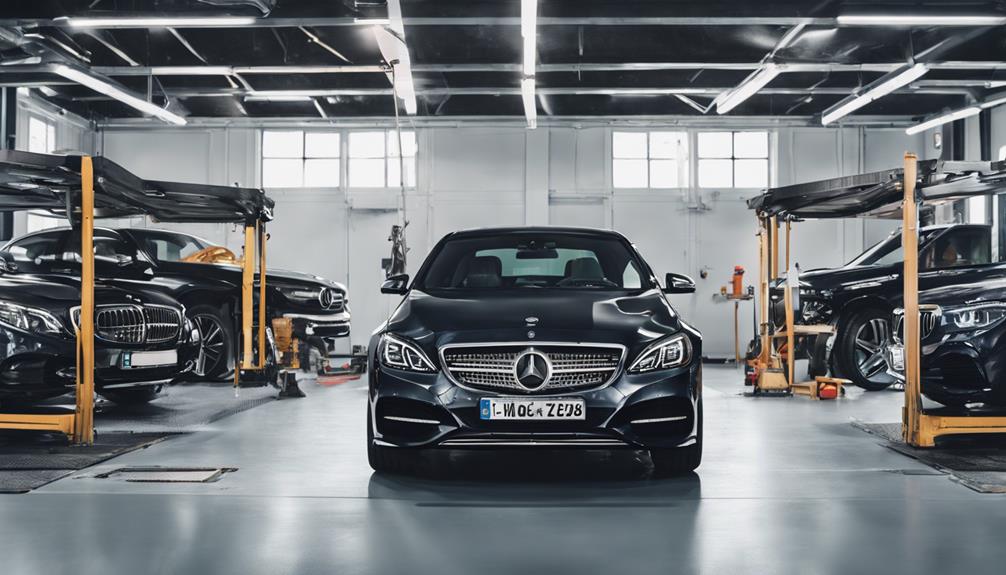
To comprehend the correlation between maintenance costs and durability in luxury vehicles like BMW and Mercedes-Benz, it's essential to explore their long-term reliability performance and associated repair expenses. When considering maintenance costs and durability, here are some key points to keep in mind:
- BMW repair costs are markedly higher than Mercedes-Benz over a span of ten years.
- Both BMW and Mercedes-Benz have repair costs above the industry average over ten years.
- J.D. Power ranks BMW 11th and Mercedes-Benz 15th in reliability.
- Consumer Reports ranks BMW third and Mercedes-Benz 24th for reliability.
- Ensuring proper maintenance and addressing transmission issues promptly is vital for vehicle longevity.
These facts highlight the importance of factoring in repair costs and reliability rankings when evaluating the overall maintenance costs and durability of BMW and Mercedes-Benz vehicles. Proper upkeep and addressing issues promptly can contribute significantly to the longevity of these luxury vehicles.
Long-Term Reliability Assessment
In evaluating the long-term reliability of luxury vehicles like BMW and Mercedes-Benz, an important aspect to take into account is their performance over an extended period. BMW, known for its sportiness and aggressive design, ranks 3rd in reliability according to Consumer Reports, while Mercedes-Benz ranks 24th.
When assessing long-term reliability, BMW's repair costs can approach $20,000 over ten years, notably higher than Mercedes-Benz. Both BMW and Mercedes-Benz have repair costs above the industry average over a decade. Mercedes-Benz, on the other hand, is recognized for better fit, finish, and refinement compared to BMW.
Addressing transmission issues promptly is vital for the long-term reliability of both German brands. While BMW offers a more dynamic driving experience, Mercedes-Benz focuses on providing a luxurious and comfortable ride.
When it comes to long-term reliability assessment, BMW Vs Mercedes-Benz, it's crucial to contemplate factors like repair costs and driving preferences to make an informed decision.
User Satisfaction Ratings Comparison
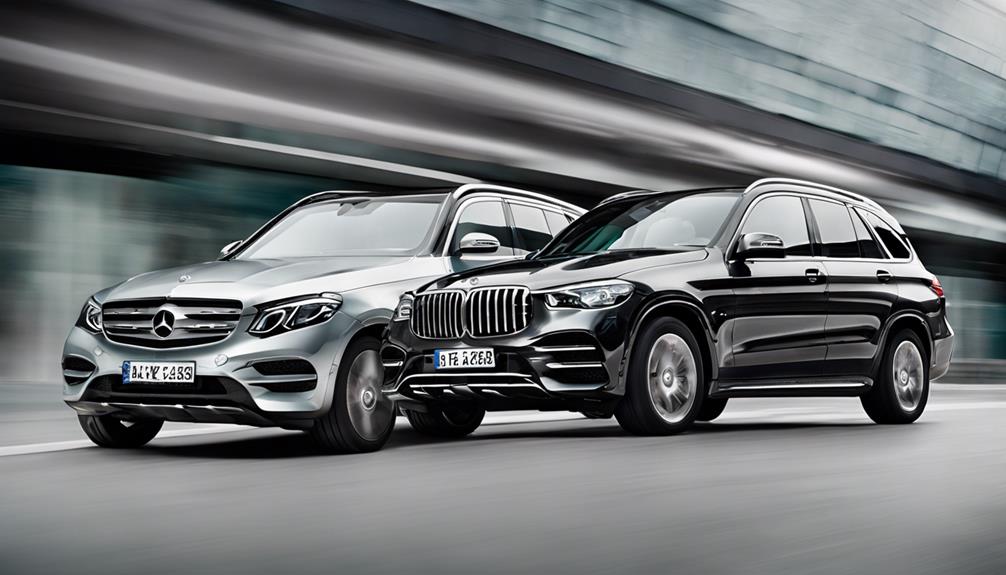
When comparing user satisfaction ratings between Mercedes-Benz and BMW, it becomes evident that owner experiences play a pivotal role in determining overall reliability perceptions.
Delving into the performance data and reliability ratings can provide a thorough understanding of how these luxury brands fare in meeting customer expectations.
Analyzing user satisfaction ratings allows for a detailed examination of the strengths and weaknesses of both Mercedes-Benz and BMW in delivering reliable vehicles to their customers.
Reliability Ratings Comparison
User satisfaction ratings reveal a stark contrast between BMW and Mercedes-Benz regarding reliability. When looking at reliability ratings from Consumer Reports and J.D. Power, there are noticeable differences between the two luxury brands:
- Consumer Reports ranks BMW 3rd and Mercedes-Benz 24th for reliability.
- J.D. Power ranks BMW 11th and Mercedes-Benz 15th in reliability.
BMW repair costs are considerably higher than Mercedes-Benz over ten years. Mercedes-Benz offers better fit, finish, and refinement as you move up the lineup. Both BMW and Mercedes-Benz have repair costs above the industry average over ten years.
Owner Experiences Analysis
Owner satisfaction ratings exhibit unique patterns when it comes to reliability concerns and issues experienced by owners for BMW and Mercedes-Benz. According to Consumer Reports, BMW ranks third for reliability, whereas Mercedes-Benz ranks 24th based on owner experiences.
BMW owners tend to report more problems with specific engine models than Mercedes-Benz owners. On the other hand, Mercedes-Benz owners have encountered issues with electrical systems, rust, air suspension, 4Matic system, and turbocharged engines.
Both BMW and Mercedes-Benz owners have expressed concerns regarding transmission problems, impacting user satisfaction ratings. It's crucial for owners to prioritize regular maintenance and address any transmission issues promptly to maintain high satisfaction levels and ensure the longevity of their vehicles.
Performance Data Examination
When looking at user satisfaction ratings for performance data comparison between BMW and Mercedes-Benz, a clear trend emerges highlighting BMW's consistent higher ranking for reliability over Mercedes-Benz. When analyzing German luxury brands, BMW tends to outshine Mercedes-Benz in terms of user satisfaction and reliability.
Here are some key points to take into account:
- Consumer Reports ranks BMW 3rd and Mercedes-Benz 24th for reliability, reflecting user feedback.
- J.D. Power places BMW 11th and Mercedes-Benz 15th in reliability assessments, indicating BMW's stronger performance.
BMW repair costs over ten years can approach $20,000, impacting user satisfaction. Mercedes-Benz repair costs are approximately $16,000 less than BMW, influencing perceptions of long-term reliability.
Common Reliability Issues Discussed
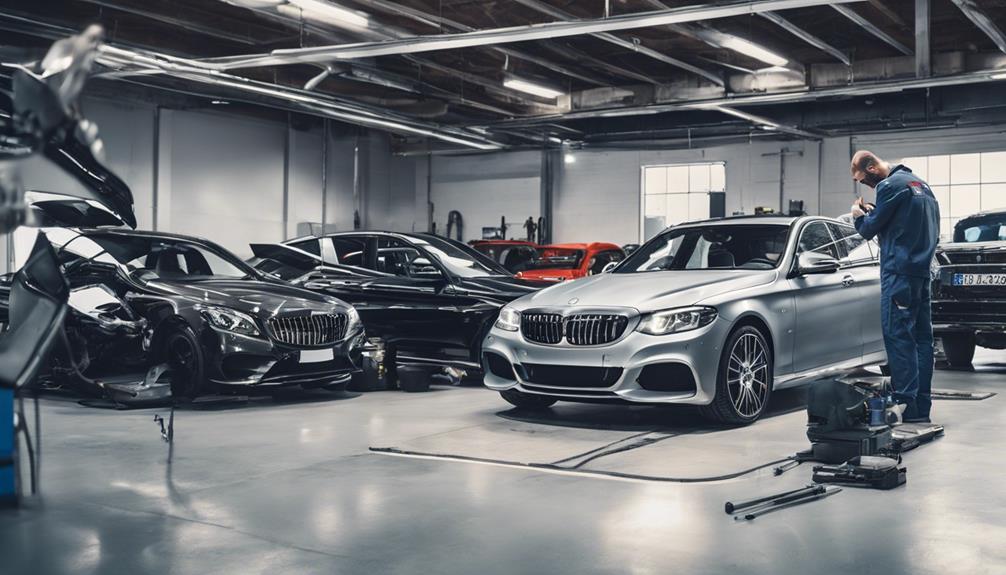
When examining common reliability issues in Mercedes-Benz and BMW vehicles, it becomes evident that both brands have faced challenges with various components and systems. Mercedes-Benz has encountered problems with electrical systems, rust, air suspension, the 4Matic system, and turbocharged engines. On the other hand, BMW has had issues with certain engine models in the past, but improvements have been made with newer engines. Both brands have also experienced transmission problems, impacting the overall reliability of their vehicles. Proper maintenance and timely addressing of these transmission issues are essential for the longevity of BMW and Mercedes-Benz vehicles.
| Common Reliability Issues | BMW | Mercedes-Benz |
|---|---|---|
| Infotainment System | Certain models may have glitches and malfunctions | Some models may face software bugs and connectivity issues |
| Transmission Problems | Historically seen in certain models, but improvements made | Instances of transmission issues affecting performance |
Expert Opinions on Brand Reliability
Expertly analyzing brand reliability data reveals distinct patterns in the performance of Mercedes-Benz, BMW, and Audi in the luxury car segment. According to Consumer Reports, Mercedes-Benz stands out as the most reliable luxury car brand, surpassing BMW and Audi in various aspects of build quality and long-term reliability. Here are some key points to ponder:
- Consumer Reports ranks Mercedes-Benz as the most reliable luxury car brand.
- Mercedes-Benz outperforms BMW and Audi in long-term reliability and maintenance costs.
- Mercedes-Benz's models exhibit better reliability over time compared to BMW and Audi.
- BMW and Audi may have higher repair costs and maintenance expenses than Mercedes-Benz.
- Mercedes-Benz's emphasis on quality and durability contributes to its reputation for reliability over BMW and Audi.
These insights highlight Mercedes-Benz's consistent focus on delivering reliable vehicles with high build quality, setting it apart from its competitors in the luxury car market.
Warranty Coverage Comparison

When evaluating the warranty coverage between Mercedes-Benz and BMW, it's crucial to take into account the length of the warranties provided by each manufacturer. Understanding the specific exclusions in the coverage can also help you assess the overall protection offered by both brands.
Additionally, disparities in the repair process under warranty can impact your ownership experience with either Mercedes-Benz or BMW.
Warranty Length Comparison
Comparing the warranty lengths between BMW and Mercedes-Benz reveals distinct differences in coverage and duration for various aspects of their vehicles.
- BMW offers a 4-year/50,000-mile basic warranty and 3-year/36,000-mile complimentary scheduled maintenance.
- Mercedes-Benz provides a 4-year/50,000-mile basic warranty with 1-year/12,000-mile complimentary scheduled maintenance.
Both BMW and Mercedes-Benz offer roadside assistance during the warranty period.
- BMW's powertrain warranty covers 4 years/50,000 miles, while Mercedes-Benz offers a 4-year/50,000-mile coverage.
- Warranty length can vary for specific components or models within the BMW and Mercedes-Benz lineups.
Understanding the specific warranty lengths and complimentary scheduled maintenance offered by each automaker can be essential in making an informed decision when choosing between BMW and Mercedes-Benz.
Coverage Exclusions Overview
When analyzing the coverage exclusions overview for BMW and Mercedes-Benz warranty policies, it is important to explore the specific limitations and exceptions outlined by each automaker. Both brands offer similar warranty lengths and coverage, but understanding the exclusions is essential for making an informed decision. Below is a comparison table highlighting key coverage exclusions for BMW and Mercedes-Benz:
| Coverage Exclusions | BMW | Mercedes-Benz |
|---|---|---|
| Wear and Tear | Not Covered | Not Covered |
| Improper Maintenance | Not Covered | Not Covered |
| Aftermarket Parts | Not Covered | Not Covered |
| Accidents | Not Covered | Not Covered |
Repair Process Differences
To understand the differences in the repair processes between BMW and Mercedes-Benz regarding warranty coverage, it's important to examine how each automaker handles maintenance and repairs under their respective warranty policies. When comparing the warranty coverage of the two vehicles:
- BMW offers a 4-year/50,000-mile limited warranty covering defects in materials and workmanship.
- Mercedes-Benz provides a 4-year/50,000-mile limited warranty and an additional 4-year/50,000-mile powertrain warranty.
- BMW includes 3 years of complimentary scheduled maintenance, enhancing the ownership experience.
- Mercedes-Benz offers a longer corrosion perforation warranty at 4 years/unlimited miles for added protection.
- Both BMW and Mercedes-Benz offer roadside assistance during the warranty period, ensuring peace of mind.
Resale Value Considerations
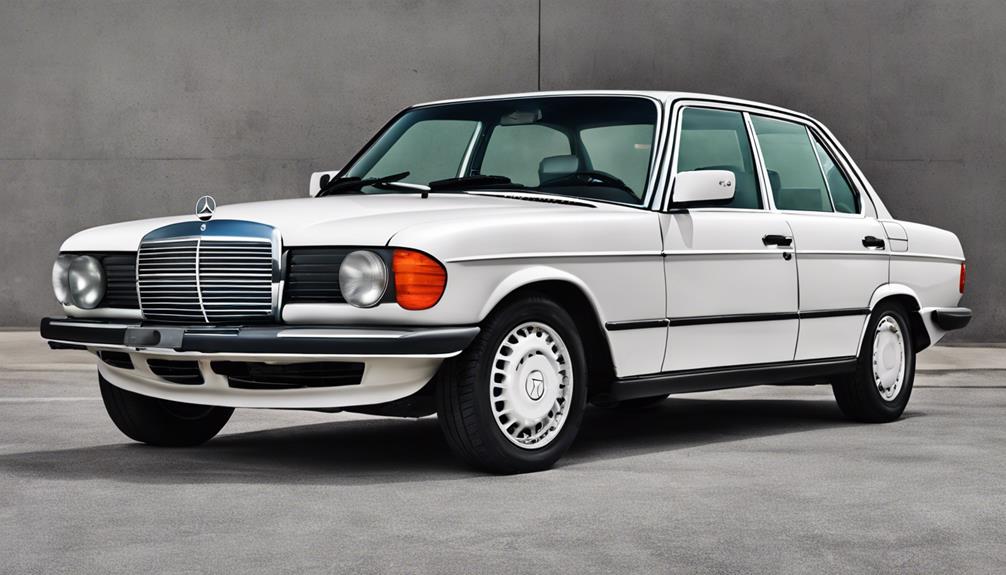
Considering the reliability data and repair cost differentials between Mercedes-Benz and BMW, the resale value considerations become essential for potential buyers.
While BMW vehicles may have higher repair costs over time, their reputation for reliability could potentially translate into better resale value compared to Mercedes-Benz.
BMW's lower repair costs can contribute positively to the long-term ownership experience, which is a critical factor for resale value.
On the other hand, Mercedes-Benz has faced issues with certain systems and engines that might impact its long-term reliability and, consequently, its resale value.
Transmission problems, particularly in Mercedes-Benz models, can have a significant impact on the overall ownership satisfaction and resale value.
When evaluating resale value and long-term ownership prospects, potential buyers should weigh the repair cost differentials, reliability rankings, and historical issues faced by both brands to make an informed decision about which brand offers better value retention over time.
Final Verdict: Which Brand Reigns Supreme?
Who emerges as the ultimate leader in reliability between Mercedes-Benz and BMW? When considering luxury car brands, Mercedes-Benz stands out as the most reliable option, according to Consumer Reports.
Here are some key points to help you understand which brand reigns supreme in regards to reliability:
- Consumer Reports ranks Mercedes-Benz as the most reliable brand among BMW, Audi, and Mercedes-Benz.
- Audi is rated as the least reliable brand in this comparison, placing BMW in the middle for reliability.
- Mercedes-Benz shows better reliability and lower repair costs, especially in its more expensive models.
- Maintenance costs increase with age, with repairs becoming more frequent after 6 years of ownership.
- Consider the impact of age, mileage, driving style, and quality of repairs on the overall reliability of BMW and Mercedes-Benz vehicles.
When looking for a luxury car brand that offers reliability and peace of mind, Mercedes-Benz appears to be the top choice based on current data and analysis.
Frequently Asked Questions
Which Is More Reliable BMW or Mercedes?
When comparing BMW and Mercedes-Benz reliability, consider factors like repair costs and reported issues. BMW ranks higher in reliability according to some sources, while Mercedes-Benz faces concerns with various systems. Make an informed decision.
Is BMW or Mercedes More Expensive to Maintain?
Maintaining a BMW tends to be more expensive compared to a Mercedes-Benz. On average, BMW repair costs can be substantially higher over a ten-year period, making Mercedes-Benz a more cost-effective option for long-term maintenance.
What Is the Most Reliable Luxury Car Brand?
When it comes to luxury car brands, reliability is a top priority for many. Mercedes-Benz stands out as the most reliable luxury car brand, offering a combination of quality construction, performance, and long-term satisfaction that surpasses its competitors.
Does Mercedes or BMW Hold Value Better?
When comparing Mercedes and BMW for holding value, consider factors like overall condition, maintenance history, and market demand. Mercedes may depreciate slower due to perceived luxury, but both brands can retain value well with proper care.
Conclusion
To sum up, when comparing Mercedes and BMW regarding reliability, both brands have their strengths and weaknesses. While BMW may have a slight edge in performance, Mercedes tends to have better long-term reliability and lower maintenance costs.
It ultimately comes down to personal preference and budget when deciding between these two luxury car brands. Consider the specific model and individual needs before making a final decision on which brand reigns supreme regarding reliability.









